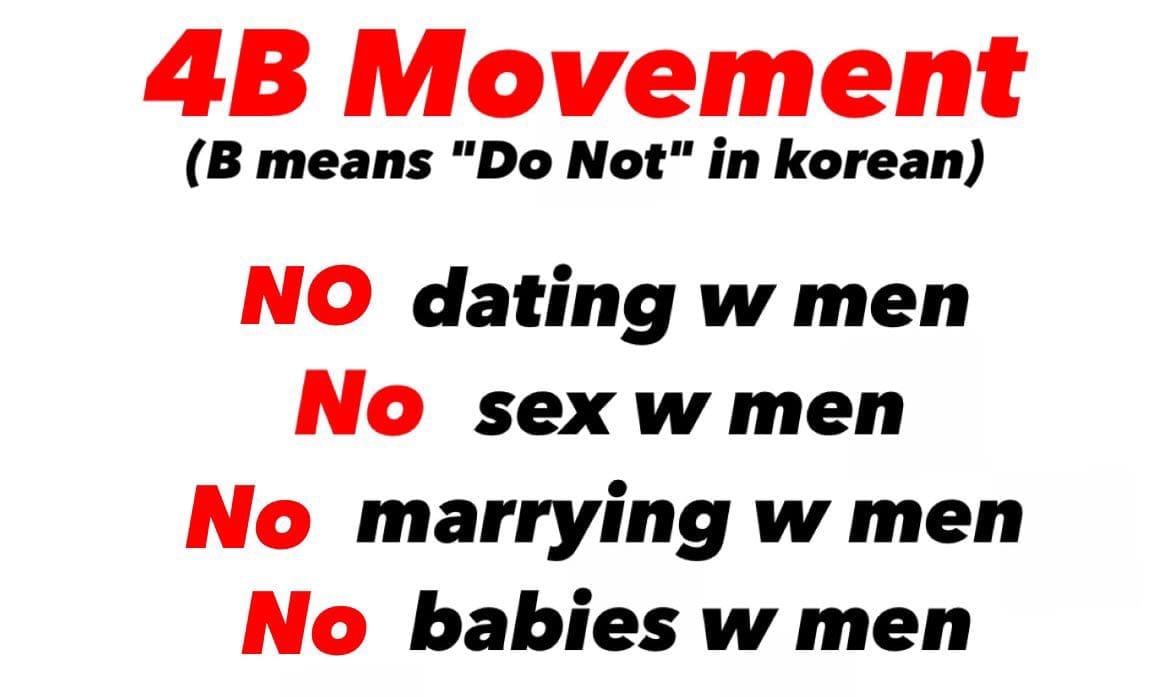South Korean politics often foreshadows trends in world politics. The latest case in point was last week’s US presidential election, in which a key factor was young men’s conservative turn fueled by toxic misogyny - a trend that has been developing in South Korea over the past decade, and played a major part in making the Yoon Suk-yeol 윤석열 presidency possible.
Some American women are looking to one response by South Korean women to misogyny: the “4B Movement.” The “four B,” or “four no’s,” stand for bi-yeonae 비연애 (no dating), bi-seonggwangye 비성관계 (no sex), bi-hon 비혼 (no marriage) and bi-chulsan 비출산 (no childbirth). Online interest in the movement has been trending in the US following Trump’s victory.
Although the impulse behind the 4B Movement is understandable, in South Korea, the movement has never been more than a fringe hashtag campaign with little real world impact. The 4B movement has also often served as a stalking horse for transphobia as a misdirected response to threats against women’s bodily autonomy.








